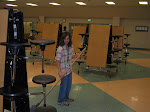Showing posts with label Teaching Helps. Show all posts
Showing posts with label Teaching Helps. Show all posts
Tuesday, January 22, 2008
Safety in the school ...is it possible?
Monday, January 21, 2008
Working Together for the Good of Students and the Community
Labels:
Education. Leadership,
Pedagogy,
Teaching Helps
Sunday, January 20, 2008
What is in your vocabulary?
Monday, January 7, 2008
Vocabulary Power Word- teach to your family!
Labels:
Parenting,
Teaching Helps,
Training
How Podcasting works...
Labels:
Teaching Helps,
Technology,
Training
Thursday, January 3, 2008
How people learn best
Labels:
Parenting,
Teaching Helps,
Training
Parents are from Mars, Teachers are from Venus
Labels:
Education. Leadership,
Family,
Parenting,
Teaching Helps
Friday, December 28, 2007
Creativity and Imagination ...is it lacking?
Your Resolution to Succeed a Principle to Share
Labels:
mentoring,
Motivation,
Teaching Helps,
Teamwork,
Teenage Problems
80/20 Thinking...
Labels:
Human Performance,
Parenting,
Teaching Helps
Thursday, December 20, 2007
End of the First Semester


 A positive attitude may not solve all your problems, but it will annoy enough people to make it worth the effort.
Herm Albright (1876 - 1944)
A positive attitude may not solve all your problems, but it will annoy enough people to make it worth the effort.
Herm Albright (1876 - 1944)


 An investment in knowledge always pays the best interest.
Benjamin Franklin
An investment in knowledge always pays the best interest.
Benjamin Franklin

Human beings, by changing the inner attitudes of their minds, can change the outer aspects of their lives.
William James (1842 - 1910)
Fear does not have any special power unless you empower it by submitting to it.
Les Brown, Communication Bulletin for Managers & Supervisors, June 2004
Monday, December 10, 2007
Great Opportunity for Christmas and to Help Your Child
Last Chance 25% Off + Free Shipping = The Gift of Learning
http://shop.knowledgeadventure.com/?EML-2007-12-HS-LAST-HOL-DEL&attr=store_home
Click on the above link or the one just below...this is only provided as a way to give your children the opportunity to grow and gain reinforcement which will allow them to achieve great strides that we never thought possible!
Below is the disclaimer from the email I received...
* Offer valid at Shop.KnowledgeAdventure.com only. 25% discount good on merchandise total only, including JumpStart World(tm) starter kit but excluding taxes, fees, shipping or recurring JumpStart World(tm) subscription charges. Code KA25OFF must be used to get discount. May not be combined with other offers. Offer good in the US, its territories and possessions, and not valid in Puerto Rico. Free shipping is available for standard shipping only in the continental U.S. Delivery times estimated by shipping carriers. Offer void where prohibited or restricted by law. Expires December 19, 2007.
Labels:
Parenting,
Student Needs,
Teaching Helps,
Technology
Thursday, November 29, 2007
A tip to help you be more effective with Adolescents
How can we help students know what they do not know?
Below is an important article because many Adolescents and in particular the Special
Ed students are over confident in their abilities. One does not want to devastate them and their self esteem but some how one wants to convey to them that there is a large amount of knowledge that they still need to learn to become self sufficient Adults after their years in school.
Read below the article and let me know what you think would be ways that we could help students to understand their need for more knowledge but gaining a "true" accessment of their current abilities...testing does not do the job any more because that can be dismissed as a bad day or through some other type of rationalization! Let me know what you think...it is easier to help a Student now with obtaining knowledge than after graduation when they face the harsh reality that they are not ready to compete in the global job market.
Middle School Students 'Extremely Overconfident' In Their Own Learning
ScienceDaily (Nov. 27, 2007) — Given national mandates to ‘leave no child behind,’ grade-school students are expected to learn an enormous amount of course material in a limited amount of time.
“Students have too much to learn, so it’s important they learn efficiently,” says Dr. John Dunlosky, Kent State professor of psychology and associate editor of Journal of Experimental Psychology: Learning, Memory and Cognition. Today, students are expected to understand and remember difficult concepts relevant to state achievement tests.
However, a major challenge is the student’s ability to judge his own learning. “Students are extremely over confident about what they’re learning,” says Dunlosky.
Dunlosky and his colleague, Dr. Katherine Rawson, Kent State assistant professor of psychology, study metacomprehension, or the ability to judge your own comprehension and learning of text materials. Their research primarily focuses on fifth, seventh and eighth graders as well as college-aged students, and how improving metacomprehension can, in turn, improve students’ self-regulated learning.
One way to improve this issue is to self-test, says Rawson. After reading or studying information, wait for a short time; then try to recall or summarize the information from memory. Next, check the information recalled against the original source material. Adds Rawson: “Our research consistently shows that without checking, people often believe they’ve remembered something correctly when in fact they haven’t.”
Currently, Dunlosky and Rawson are developing a “study buddy” that combines accurate monitoring with effective schedules of learning. When the guide is completed, they hope to provide it to schools across the state of Ohio.
Dr. John Dunlosky, Kent State professor of psychology, and his colleague, Dr. Katherine Rawson, Kent State assistant professor of psychology contributed to this work. It was funded by the US Department of Education.
Adapted from materials provided by Kent State University
Labels:
Parenting,
Teaching Helps,
Teenage Problems
Tuesday, November 27, 2007
After Thanksgiving

1. November
2. December
3. Christmas
4. Present
5. Ornament
6. Snow
7. Carol
8. Give
9. Christmas Eve
10. Shepherds
11. Manger
12. Candles
13. Candy Cane
14. Reindeer
15. Sleigh
Please help your child to learn these words. You can have them to be copied. You discuss the meaning of the words. You can also teach your child how to sound them out focusing on the sounds of the letters as well as the division into syllables.
---------------------------------------------
Report: U.S. youth reading less than previous generation
ASCD SmartBrief 11/26/2007
Young Americans spend an average of 10 minutes or less of their daily leisure time on reading, according to a new National Endowment for the Arts report, raising concerns about their academic performance, career prospects and civic engagement. Focusing on testable reading skills in classrooms does little to instill a love of books, according to Dana Gioia, the organization's chairman. Education Week (premium article access compliments of Edweek.org) (11/19) New York Times, The (11/19)
________________________________________________
Wednesday, August 01, 2007
Readers make better workers
Cutbacks To The Arts May Be Depriving Us Of The Best, Brightest, Most Committed And Hardest-Working
Diane Stafford, McClatchy-Tribune Information Services. Published: Wednesday, August 01, 2007
Getty Images File PhotoAsk interviewees if they read for pleasure. The question avoids discrimination rules, but reveals much.
Do you read for pleasure? There: A free job interview question for employers who say they can't find good help.
Or for managers who say too many questions they want to ask applicants are prohibited by anti-discrimination rules.
Ask job hunters if they have a library card. Ask what book they're reading now.
Dana Gioia, chairman of the National Endowment for the Arts, inspired that idea when he spoke to Kansas City-area business and philanthropy leaders last week in Kansas City, Mo.
People who read, Mr. Gioia said, are more likely to be patrons of the arts and other community efforts. They are more likely to volunteer. They are more likely to know things beyond their specialized career field.
And they are more likely to have the knowledge and the communication skills needed in most workplaces.
At an event organized by the Arts Council of Metropolitan Kansas City and Commerce Bank, Mr. Gioia told a stark truth:
"Thirty-two percent of kids drop out of high school in the United States. As business leaders, you inherit that. People come to you for jobs who don't have a basic level of skills."
The United States, he said, as is true with other Western nations, is suffering from decades of budget cuts by local school districts, which decimated arts education in the high schools. In some communities, only the children of wealthy parents who can afford private lessons are being exposed to music and other fine arts, he said.
That could mean fewer artists, fewer musicians, fewer authors will discover their creative muses. But equally important is that "we are not producing the next generation of audiences and arts patrons."
Nor the next generation of good workers. Nor the next generation of good citizens in a democracy.
So ask those job applicants if they read.
"The key is reading for pleasure," Mr. Gioia said. "A person who reads is more likely to engage in every form of civic behaviour we can measure."
Reading exposes people to larger worlds than their own. It sparks imagination.
"It allows people to feel what it's like to live someone else's life," Mr. Gioia said. "It creates compassion and understanding that we're all in this together."
That's reason enough to aim for a workplace full of readers. There's more.
"Reading requires focused, linear attention -- the ability not to be distracted," he said. "Reading teaches information, syntax, vocabulary. ... It nourishes curiosity and rewards intellect."
Employer surveys often rank lack of communication skills, written and oral, as the biggest workforce problem. They say their employees can't follow directions, can't write a memo, can't express themselves well.
U.S. businesses spend from US$2-billion to US$5-billion a year on remedial training in the three Rs to bring workers up to skill levels they need, Mr. Gioia said.
As head of the government agency, Mr. Gioia is pushing to fund arts education "town by town across the country."
"Without arts and patrons, we won't have thriving education centres or communities. We won't have urban centres people want to move to," he warned.
Copyright © 2007 CanWest Interactive, a division of CanWest MediaWorks Publications, Inc.. All rights reserved.
Labels:
Assignments,
Current Events,
Parenting,
Teaching Helps
Monday, November 12, 2007
Sunday, November 11, 2007
Monday, November 5, 2007
Jump Start.org Tips

Jump Start.org Tips

Labels:
Parenting,
Practical Ideas,
Teaching Helps,
Teenage Problems
Friday, November 2, 2007
Helping Students Learn at Home and at School
Labels:
Education. Leadership,
encouragement,
Teaching Helps
Subscribe to:
Posts (Atom)
What makes this blog worth your time?
"Providing Opportunities" is a blog that will be worth your while to browse at least once a week for ideas that might work for you as you seek to better the world for the youth of t0day. As you check this blog you will find out information about this class that will inspire you, inform you and may give you ideas. This blog will be different in that if ideas are given as as a post and they seem to warrant letting others know about them then they will be posted with credit given for the source. Stephen Covey the famous author stressed the idea of "synergy" and those accomplishing more together than working seperately. This blog can accomplish synergy which provides a resource which Dr. Harry Wong states is the best way for any teacher to learn which is to "steal ideas" from other teachers and use them. "Providing Opportunities" can only work if others will submit their ideas that they have either used or seen used that worked.
add'>http://technorati.com/faves?sub=addfavbtn&add=http://providingopportunities.blogspot.com>Add to Technorati Favorites
View blog authority
Technorati Chart
add'>http://technorati.com/faves?sub=addfavbtn&add=http://providingopportunities.blogspot.com>Add to Technorati Favorites
View blog authority
Technorati Chart
Making a difference today...will provide a better tommorrow!

Providing Opportunities today changes a tommorrow!










